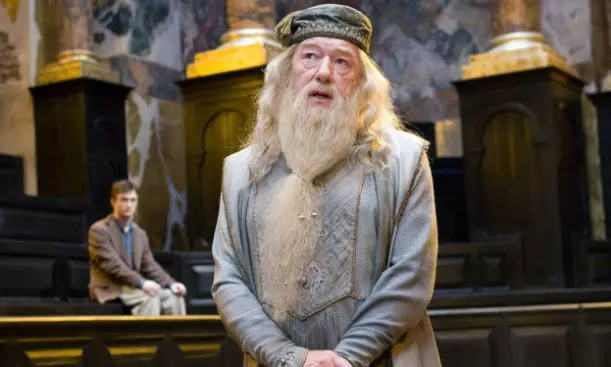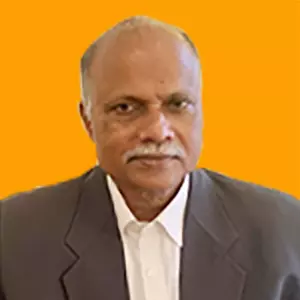
- Home
- India
- World
- Premium
- THE FEDERAL SPECIAL
- Analysis
- States
- Perspective
- Videos
- Sports
- Education
- Entertainment
- Elections
- Features
- Health
- Business
- Series
- In memoriam: Sheikh Mujibur Rahman
- Bishnoi's Men
- NEET TANGLE
- Economy Series
- Earth Day
- Kashmir’s Frozen Turbulence
- India@75
- The legend of Ramjanmabhoomi
- Liberalisation@30
- How to tame a dragon
- Celebrating biodiversity
- Farm Matters
- 50 days of solitude
- Bringing Migrants Home
- Budget 2020
- Jharkhand Votes
- The Federal Investigates
- The Federal Impact
- Vanishing Sand
- Gandhi @ 150
- Andhra Today
- Field report
- Operation Gulmarg
- Pandemic @1 Mn in India
- The Federal Year-End
- The Zero Year
- Science
- Brand studio
- Newsletter
- Elections 2024
- Events
- Home
- IndiaIndia
- World
- Analysis
- StatesStates
- PerspectivePerspective
- VideosVideos
- Sports
- Education
- Entertainment
- ElectionsElections
- Features
- Health
- BusinessBusiness
- Premium
- Loading...
Premium - Events

India is a multicultural world, with common, shared, underlying themes; its many languages dictate we must be bilingual, trilingual
The death of actor Michael Gambon grabbed headlines, thanks to his part in popularising a modern myth, playing Albus Dumbledore in six of the eight Harry Potter movies that together raked in some $7.7 billion worldwide. The British press described him as Sir Michael Gambon, knighted as he was for his long, solid career in British theatre and television, which included playing Shakespearian heroes, and about 150 character roles in films. But people in India know him because he played Dumbledore, the headmaster at Hogwarts, the school of magic where Harry Potter learns magic, and, more importantly, forges friendship, develops moral clarity and courage, discovers love and loss, and fights the good battle against evil.
I asked my son who grew up reading Harry Potter what Dumbledore meant to him. He is probably a child’s first introduction to moral ambiguity, he replied. The universe of children’s literature is full of violence, in which demons, giants, witches, goblins and menacing beasts are meted out death, with glee, even if after much struggle. But those who are killed clearly deserved to die and those who survive occupy the moral high ground.
Moral ambiguity suffuses the little speech Duryodhana makes to the Pandavas, shortly before his death at the hands of Bhima, who breaks his cousin’s legs, going against the rules of moral combat with maces. But the usual versions of the Mahabharata children encounter do not dwell on such parts of the complex epic. So, even for Indian children who grow up reading, for the most part, books in English, and do not get a chance to inhabit the amoral world of the Panchatantra, Dumbledore is one of the first characters they meet, who cannot be sorted entirely as good or evil.
Overtly, he is Harry Potter’s guardian angel in residence. But he grooms Harry, in cold blood, to fight to the death, suspecting, as he did, that a part of the enemy, Voldemort’s soul, is encased in Harry’s being, and that Harry would have to die, in order for Voldemort to be killed. This dispassionate treatment of a trusting child’s life, if not past misadventures of his youth, when he plotted with dark wizard Grindelwald to conquer the world, only to later give up that path and defeat Grindelwald in a historic duel, makes Dumbledore a complex character. While the films do not do justice to such complexity, the actor who played Dumbledore certainly held the promise of delivering it, if called upon to do so.
Harry Potter appeal
Over successive volumes, Dumbledore moves from light to dark, even as fellow teacher at Hogwarts, Prof Snape, moves from dark to ever lighter shades of grey.
The popularity of the Harry Potter series — his creator JK Rowling became a billionaire, thanks to that popularity — is a product of globalisation. The 1990s, when Harry Potter made his appearance, was a period when countries like India were liberalising, the World Trade Organisation was formed, people were getting access to broadband, Western and Japanese media content was being distributed by cable television, and people started moving across borders for work in ever larger numbers. A prospering middle class consumed books, cartoons, movies and music from the Anglosphere in ever larger quantities.
The world of Harry Potter reflected the values of the globalising world. The school of magic is multicultural and inclusive: Harry Potter’s friends include Parvati Patel and Cho Chang. Giants and werewolves are differently-abled, rather than abominable. The teams that play the game of Quidditch include both boys and girls. Class hierarchies are detestable, and to be subverted. Grit, loyalty, teamwork and moral clarity matter more, ultimately, than magical powers. Love is a moral force that survives the individual, to inspire and protect.
The world of Voldemort is an authoritarian polity that abhors dissent and polices thought. Most people find it convenient to submit rather than resist. Quislings and collaborators abound. Yet, if the resistance persists, it will get support and assistance from unexpected quarters. Fight the good fight, and good shall triumph over evil — like most books that find popularity, Harry Potter also offers moral reassurance.
Is the popularity of Harry Potter in India a symbol of persistent colonialism? Should our children read only books in the Indian tradition, watch only Chhota Bheem, and not One Piece? Such doubts are wholly misplaced. The essence of globalisation is not greater trade and investment flows across borders; rather, it is the shifting of our cultural coordinates from the local to the global. To use a telecom metaphor, we use global positioning satellites to locate where we are, not just the local cell towers. But our location is best specified when we use both means. You cannot be a citizen of the globe, without being a wholesome citizen of your country. Tagore, one of our profound critics of restrictive nationalism, was quintessentially Bengali, and, rooted in the culture of Bengal, could enrich his cultural universe with the goodness of other cultures from around the world.
Multicultural, multilingual
India is a multicultural world in itself, with common, shared, underlying themes. Its many languages dictate that Indians cannot afford to be unilingual; we must be bilingual or trilingual, at the least. Such investment in other languages entails not loss of cultural authenticity but cultural enrichment. Instead of trying to impose Hindi on non-Hindi speakers, what the government should do is to encourage translations across India’s many languages to help people understand the nation’s diversity, and its collective richness that compels celebration of the whole and its parts.
It is from this standpoint that we must see the proliferation of cultural offerings in our lives, emanating from elsewhere in the world, in our news consumption, and our intimate spaces, via what we hear and read. That we take note of the passing of an Irish-English actor whose definitive role was that of a globally recognised cultural icon, is a tribute not so much to magic as to global interconnectedness, in today’s world.
(TK Arun is a senior journalist based in New Delhi)
(The Federal seeks to present views and opinions from all sides of the spectrum. The information, ideas or opinions in the articles are of the author and do not necessarily reflect the views of The Federal)


